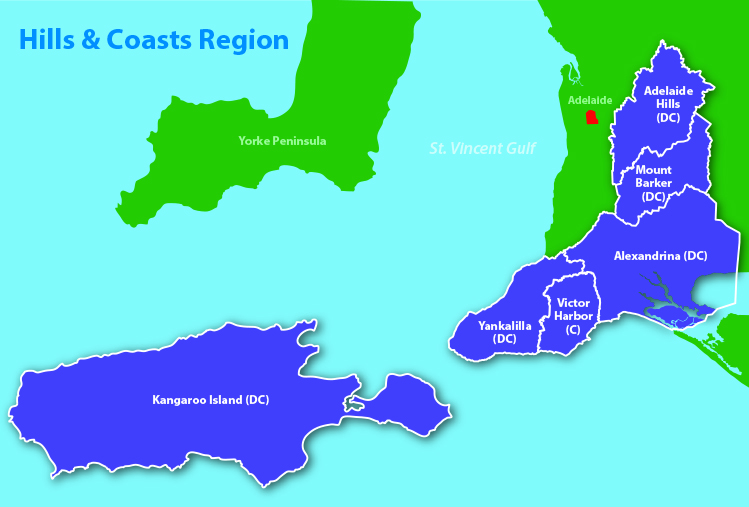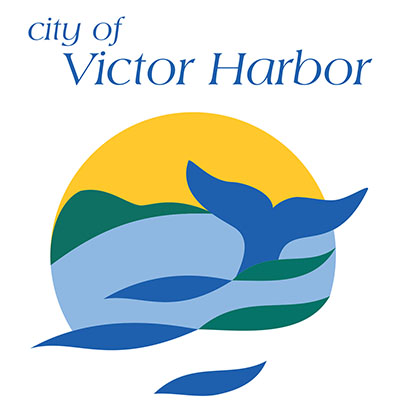Community Energy Program
The Resilient Hills & Coasts Climate Change Adaptation Project is exploring how our region could benefit from local councils supporting the community to participate in energy projects. The Hills & Coasts region includes the council areas of Adelaide Hills, Mount Barker, Alexandrina, Victor Harbor, Yankalilla and Kangaroo Island.

Collectively, the Hills & Coasts region spends around $300m on electricity each year, with much of this revenue leaving our communities. In addition, rising energy costs were highlighted in the 2016 & 17 Victor Harbor Business Survey as a key constraint to growing local businesses. We believe our communities deserve access to energy that is affordable, reliable, good for the local economy and good for our environment. We are exploring how community energy could place downward pressure on energy prices for residential & commercial customers whilst facilitating the uptake of renewable energy.
Community energy means enabling community members to have a say in how their energy is supplied and used. You can help shape our understanding of what people in our region think about the importance of community energy, the ways that you would like to see the community benefit, and the role that councils could play in supporting community energy.
What is community energy?
In simple terms, community energy is a group of people coming together to generate, own, manage, or reduce consumption of energy. Every community energy initiative is different and developed for different reasons - from tackling climate change to generating local jobs.
Community energy projects come in many different forms, including:
- Supplying local renewable energy e.g. Hepburn Wind - two wind turbines owned by local investors that supply electricity to the towns of Daylesford and Hepburn Springs;
- Programs delivering energy advice, products and services e.g. Moreland Energy Foundation’s Positive Charge;
- Local renewable energy and climate change strategies e.g. Totally Renewable Yackandandah and Zero-Net Energy Uralla
- Community owned electricity retailer e.g. Enova - Australia’s first community owned electricity retailer, using profits from energy sales to support the community
Community energy is relatively new to Australia. There are now over 100 community energy groups in Australia, with over 70 projects, and local governments are increasingly getting involved.
Why are we interested in community energy?
By working together with local communities on community energy projects, the region can potentially:
- reduce cost of living pressures for local residents and businesses
- leverage the collective buying power of the region
- localise the benefits of energy expenditure by keeping money in the region and generating local jobs
- help transition our community toward a clean energy future
- identify ourselves as a region of choice for climate-ready development and investment
- be recognised as leaders in innovation and collaboration
What could community energy look like in our region?
Generate and store local renewable energy
- We have solar, wind and waste resources - we could develop them ourselves and in the best locations
- We have electricity networks that are undersized - we could supplement them with local generation and smart electricity use
- We are vulnerable to blackouts during bushfires and storms - we could make sure stored energy is available and well shared during emergencies.
Support all community members to participate and take action
- We have residents on low incomes or in rental accommodation - we could prioritise services to help them cut their energy bills and to access cheaper solar power
- The energy system is changing fast and we have a confusing array of choices - we could give everyone access to energy advice and help our homes and businesses be future-ready
Promote local job opportunities and innovation
- We spend around $300m per year on energy across the region - we could create locally owned energy businesses that keep much of that money within the region
- We have some local businesses that supply energy products and services - we could ensure that all local energy projects train local providers and grow the skills and jobs in the region
- We have challenges, like peak summer demand that require large investment or creative solutions - we could test new solutions and become an energy innovation region
These are just a few of the ways community energy could help the Hills & Coasts region become more resilient.
Join our mailing list
Stay up to date with our ongoing work around community energy projects. Sign up here.
Want to know more?
For further information about Resilient Hills & Coasts click here.

